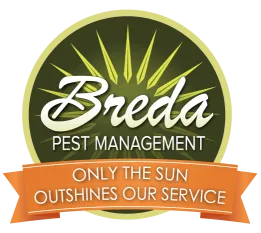Squirrels, rodents, and attic insects can cause more attic damage than what one would expect. The first two can dig burrows, damaging insulation that is already set up; insects thrive in the warm climate of the attic. Termites, for example, can feast upon the cellulose found in wood in an attic. An average termite colony can eat a 2x4 in as little as six months and there are some species of termites that can eat wood even faster. Squirrels and rodents won't be able to form their burrows in the dense insulation and attic insects will be eliminated due to the borate.
Breda replaces damaged insulation with Applegate, a borate, loose-fill insulation. It not only insulates the attic, but also fights off critters such as American Roaches, Silverfish, and even most types of mold. This insecticide- laced insulation not only fights off insects, but it also prevents squirrels and rodents from burrowing, giving you multiple benefits to install pest insulation.
Environmental Factors
The cellulose insulation, made from about 87% recycled newspaper, has the highest (Class I) fire safety rating and provides a dampened sheetrock, or sound seepage, throughout the house. Borate insulation is also eco-friendly in that it significantly reduces your “carbon footprint” and reduces energy savings typically from 20 to 38%. Not only will you be helping the planet, but you also will save a pretty penny on your energy bill.
How It Works
Pest insulation works in two different ways to keep out animals and insects. Rodents and squirrels can use normal insulation as a home or nest because it is easy to burrow in. With pest insulation, the material is too thick and will not provide adequate shelter. The insulation works much differently for insects. The insulation is coated with borate, a chemical that can kill insects. Once the bugs come in contact with borate, it sticks to their skin. Insects self clean themselves by licking their bodies. Once they lick the borate, it goes to their gut. Insects are unable to properly digest borate, and it will cause them to die of dehydration, malnutrition, or both. Borate is undetectable to insects so there is no chance that they would notice it in the insulation and stray away from it. Another bonus is that the borate in the insulation can help absorb and mask any gross odors in your attic.
The cost of this treatment varies per household according to the damage done and the size of the attic. We can either replace the insulation entirely or do what is called “capping,” in which we add to the existing foundation. The cost, however, cannot compete with the benefit you will receive in the amelioration of your energy bill.
Given that pest insulation saves you money, keeps you warmer in the winter and cooler in the summer, and keeps unwanted critters at bay, it is a no brainer to get this type of insulation installed in your attic. Contact Breda Pest Control today to request a consultation and to learn more.




